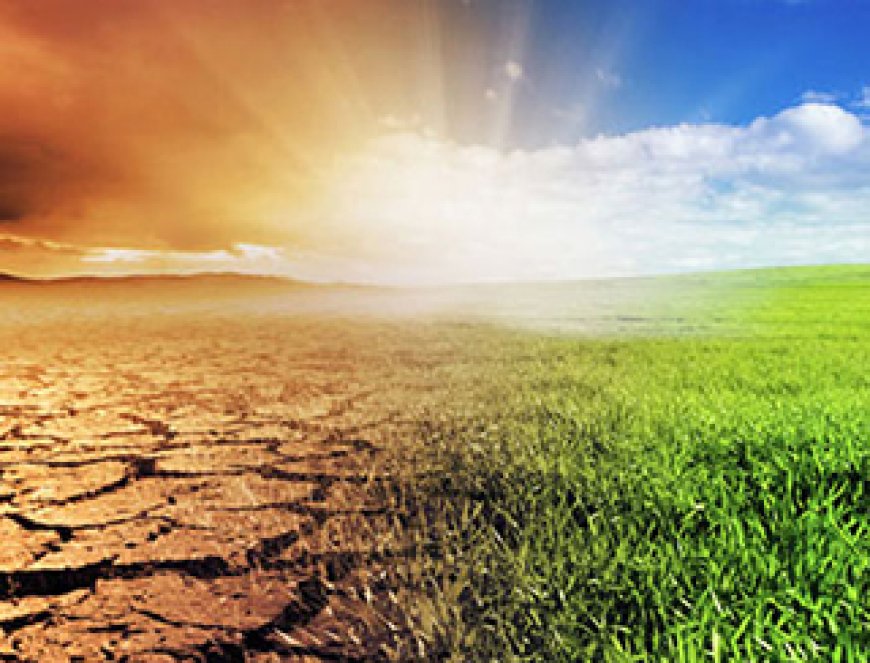Climate Change

Climate change will always be a topic of discussion, whether on an elementary level or in an international forum. Many acts have been made, many 'solutions' have been found, various workshops have been held, and countless people have talked about the ongoing, rather worsening, climate change. One such seminar I attended was held by the International Environment Journalists' Network [EJN], a network of 20,000 journalists from around the globe, which Joydeep Das Gupta moderated. The workshop consisted of journalists from all over India with different expertise. Considering their publications' influence, even top college journalism students- change makers- were invited. The primary focus of this seminar was to talk about renewable energy, solving the energy crisis, and the various new technologies for renewable energy. 'Once you solve the energy problems, many climate issues will be solved,' said Madhav Gadgil, one of the spokespersons present there. A Padma Bhushan awardee, an Indian ecologist, writer, columnist and the Centre for Ecological Sciences founder. He discussed his concerns such as:
Harm to the tribes: The building of dams causes a lot of trouble to the indigenous tribal communities that live around them. Mr Gadgil also witnessed the making of the Koyna dam when he was young, and no rehabilitation and relief laws were present for the people who evacuated due to such projects. Most of the time, the government builds dams with a significant goal, i.e., meeting the energy percentage, but it needs to check the harm it causes at the ground level.
Disadvantages due to the building of these dams include:
- Dams and reservoirs emit greenhouse gases.
- Habitat fragmentation
- Lowering of groundwater table
- Violation of human rights
- Destroy a river's flow, making it unpredictable.
Local communities and their exploitation: Many local communities in India live in hath any with nature and are often by higher authorities such as forest officials. There have been many such cases where complaints have been filed against these authorities, and such news spawns quite frequently.
Throughout the discussion, the main highlight was how renewable energy might be a better option. Still, it has limitations and disadvantages, like disrupting wildlife habitats, flora, and fauna. This is a very debatable topic that would provoke arguments from both sides.
A field trip to Praj Industries Limited was held on the second day. This industry churns out ethanol from sugarcane waste given to them by sugar factories. Founded by an IIT Bombay pass-out, Pramod Chaudhari, his primary motive was that sugar factories could have been more profitable as they had a fixed selling price mandated by the government. Hence, he took factory waste products and produced ethanol, CNG, dry ice, and methane. His motto revolves around protecting the earth and the pressing issue of climate change. The company also focuses on developing new technology. It has two generations of such tech [G-1 and G-2] and aims to make ethanol and green hydrogen from the waste of maize and hay. Such industries, which also develop new technologies, are a crucial part of the country's growth and a helping hand in the fight against climate change.
As environmentalists constantly urge people to wake up and learn about the various harms to the climate, better options have been made available to consumers, such as electric bikes and cars. Such products are marketed to be air breathers for the environment by emitting fewer gases and not leaving a carbon footprint, but what about the factories in which they are manufactured? Do these plants not emit carbon footprints in the area or locality they are built? What about the batteries used in these vehicles? The main concern is the disposal of these batteries. Such questions do arise, but no hardcore data is available to prove/disapprove them; hence, it may be the more viable option for now. Seeing how many erudite scholars are concerned about the environment and raise their voices for our earth is a relief. In India, there has been a net zero target set for emissions coverage- covering all the economic sectors- by 2070. Even though the government has declared the target, the steps towards the goal still need to be bigger, more implementation needs to be done, awareness should be spread to the locals, and continuous checks should be made at the ground level.
The climate needs to change for the better, and it can only be done if everyone joins their hands together.











































